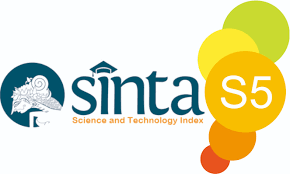Standar Isi Pada Manajemen Kurikulum Lembaga Pendidikan Buddha (Tinnjauan Kesiapan Keberadaan Sekolah Minggu Buddha Di Indonesia)
Abstract
In practice, article 12 paragraph (1) of Law no. 20 of 2003 concerning the National Education
System has not been implemented effectively with the existence of schools that do not provide
services for Buddhist subjects so that the function of Buddhist religious education carried out nonformally
by Buddhist educational institutions is very important to complete the formal education.
This paper aims to provide an overview of content standards in curriculum management in
Buddhist educational institutions on the readiness of the existence of Buddhist schools in
Indonesia in the future. The research method used is qualitative by means of a literature study;
collected several articles, books, journals, regulations and Buddhist Laws and Suttas as well as
several reference sources related to Curriculum Management in Buddhist Educational institutions.
The results of this study found that the Buddhist Sunday School Curriculum as stipulated in the
Decree of the Director General No. 63 of 2017 has referred to the National Education content
standards, as well as the Nawa Dhammasekha curriculum. This curriculum is in accordance with
the core competencies and competencies of graduates, so it can also be used as a reference for
curriculum preparation for Buddhist schools in the future. In addition, Buddhist educational
institutions must really be able to implement curriculum management in a professional manner so
that the quality of Buddhist and Buddhist education can increase and meet the goals of national
education and Buddhist education itself, and if the opportunity to establish a Buddhist school is
open, Buddhist Educational institutions already prepared with an appropriate curriculum and with
a professional curriculum management, this will be a contribution as well as a solution to the gaps
that arise from the ineffective implementation of article 12 paragraph (1) of Law no. 20 of 2003.




